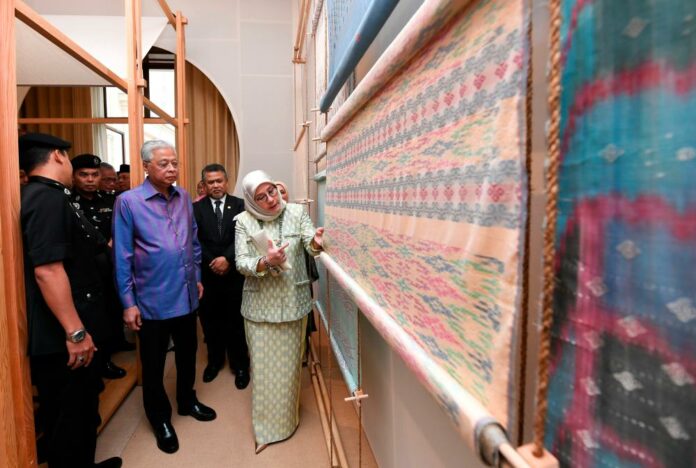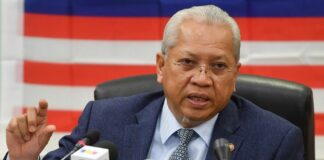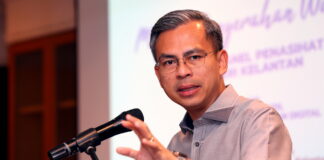LONDON, May 10 — The country’s textile industry especially unique and creative fabrics such as weaving and batik has great potential to bring the nation to the international stage and become a profitable commodity, said Prime Minister Datuk Seri Ismail Sabri Yaakob.
In expressing confidence that the country’s industry such as the Royal Pahang Weave, batik, songket and tekat (embroidery) is viable to be brought to the world, he said such textile industries could garner the attention of the people and generate income.
“I believe if large-scale promotion is carried out, (to introduce the national textile industry such as weaving and batik) in London, it could attract tourists to the city,” he told Malaysian journalists here.
Ismail Sabri who arrived in the capital of United Kingdom early Tuesday morning visited the Royal Pahang Weave exhibition held for the first time at the Malaysian High Commission in Belgrave Square.
Earlier, the Raja Permaisuri Agong Tunku Hajah Azizah Aminah Maimunah Iskandariah granted an audience to Ismail Sabri and delegation and Her Majesty later visited the Royal Pahang Weave exhibition which began yesterday until Sunday (May 15).
Tunku Azizah, who has been championing the country’s weaving programme, also told Ismail Sabri about the exhibition which, among others, showcased weaving from prisons and featured woven clothing including the Raja Permaisuri Agong’s woven garment collection.
The Prime Minister, who is on his way to Washington DC to attend the ASEAN-United States Summit, was in London to visit the exhibition and attend the Malaysian Family Hari Raya Aidilfitri gathering with Malaysians residing in the United Kingdom.
Ismail Sabri, who is the Member of Parliament for Bera, was proud of the encouraging response to the Royal Pahang Weave exhibition “Weaving Hope” in conjunction with London Craft Week as it involved the creativity of the inmates of Penor and Bentong Prisons in Pahang.
He said such a weaving programme could be improved, including in terms of training and skills, as well as gaining public support.
Referring to the Pahang government’s proposal to establish a weaving centre in Pekan, Pahang, the Prime Minister believed that more technical and vocational training education in the country’s textile industry would be created.
He did not rule out the possibility that more training institutes related to the country’s textile industry would be established in the future.
Ismail Sabri, who also pioneered the use of batik every Thursday among civil servants and Members of Parliament, said he was proud that the country’s batik was now more accepted and its use was getting more popular.
The Prime Minister and delegation then left for Washington DC at 5 pm local time (12 midnight Malaysian time).
















